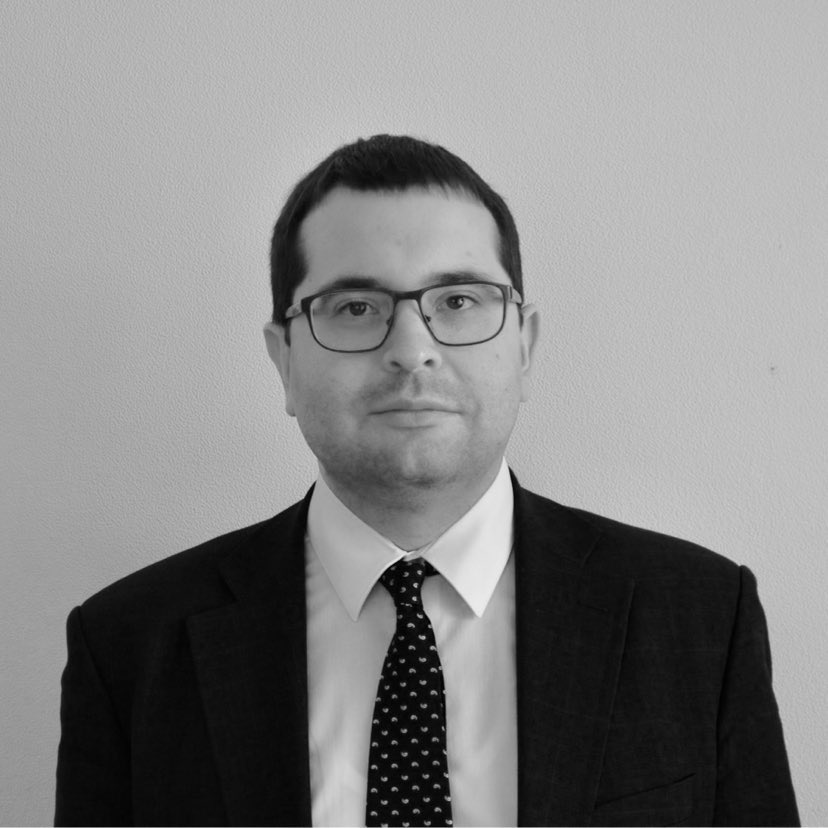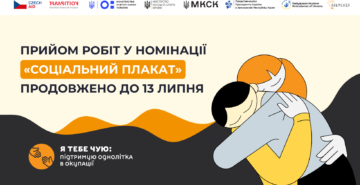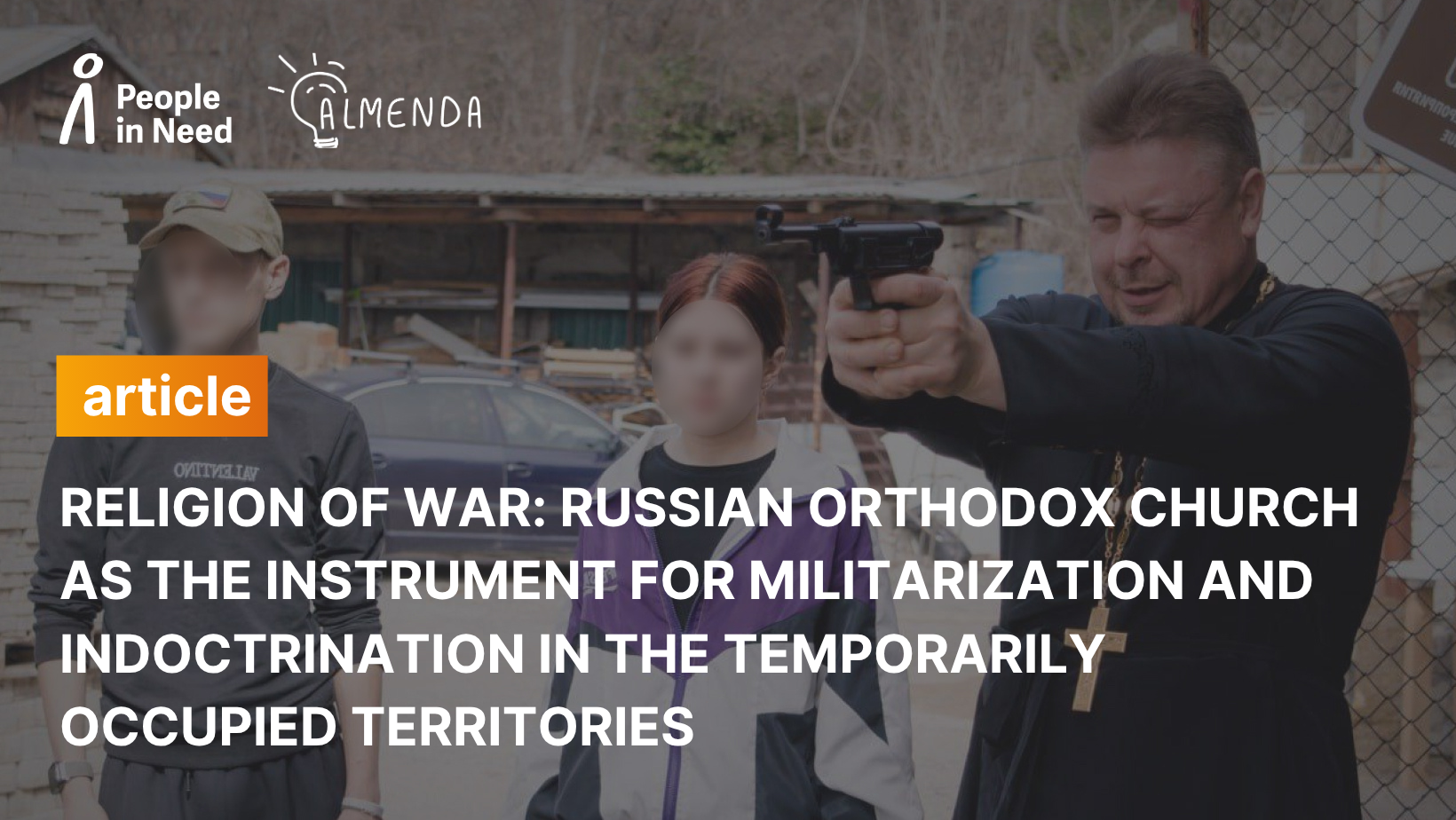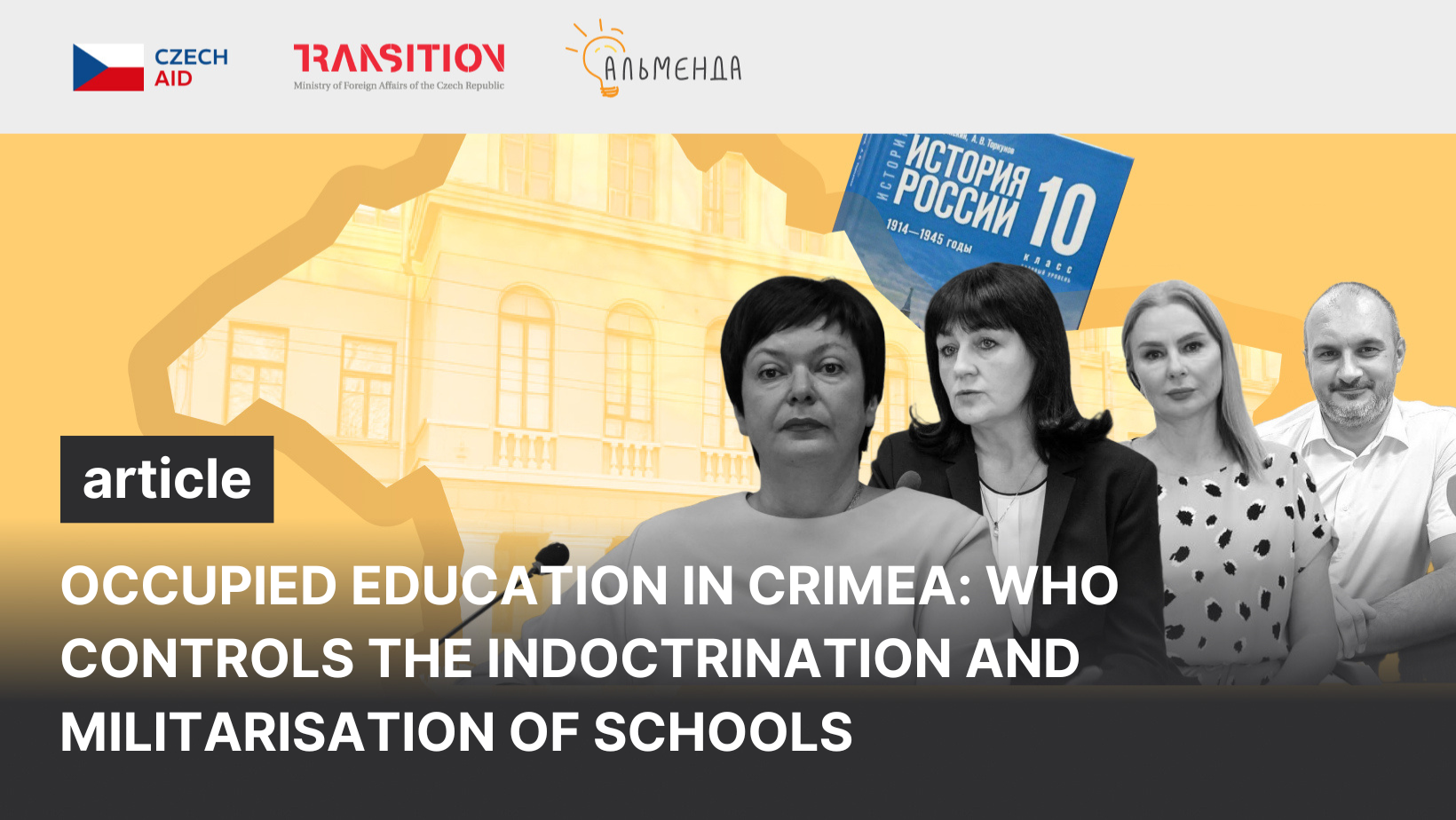

Separate problematic issues of criminal liability of minors for collaborative activities


Oleksandr Lapin, lawyer
Since collaborative activity (in the absence of the unified definition of this activity in the current legislation, for the purposes of this article we will be using the set of criminal offenses provided for in the Article 111-1 of the Criminal Code of Ukraine) is a relative novelty in the national legislation and judicial practice, many debatable issues arose. I would like to encourage my colleagues to have a professional discussion on the issue, which is not yet the main problem of this article but may become one in the future.
The fact is that when making decision to criminalize certain types of activities of fellow citizens who remained in the temporarily occupied territories, the legislator, in our opinion, firstly, did not define a special subject under this article, leaving it general, which means that according to the provisions in Part 1 of the Article 22 of the Criminal Code of Ukraine, a natural person aged 16 and above, including underaged, can be the subject of the crime under the Article 111-1 of the Criminal Code of Ukraine. Secondly, the legislator did not take into account the significant differences between the temporarily occupied territories, the time of occupation of which, at the time of the adoption of the Law No. 2108-IX, was already measured in years and the territories which were de-occupied after several weeks or months. It was also not taken into account that the first mandatory evacuation from the territories, where hostilities were taking place or which could be predicted to be occupied in the nearest future with the state providing a certain range of assistance to the evacuated population (at least three free “Ukrzaliznytsia” trains, other transport, temporary accommodation and monthly payments), was announced only om August 2, 2022, which was after 4.5 months since the Article 111-1 of the Criminal Code of Ukraine was adopted.
Risks for children
In this way, the legislator, knowingly or unknowingly, exposed the minors aged 16 to 18 who remained in the temporarily occupied territories after their occupation in 2022 (or lived there since 2014-2015) to the danger of criminal liability and punishment, while the Convention on the Rights of the Child requires that in all actions regarding children, primary attention should be paid to the best possible protection of the interests of the child, and the Law of Ukraine “On the Protection of the Childhood” prohibits the participation and the use of children in combat actions and armed conflicts, their involvement in paramilitary or armed formations that are not envisioned by the Laws of Ukraine. It is worth emphasizing separately, that in Part 2 of the Article 30 of the Law mentioned above it is directly stated that: “The state takes all possible measures to prevent the recruitment and use of children in hostilities and armed conflicts, identify the recruited children and free them from military service”, in other words, the legislator sees children, who have been recruited to paramilitary and armed formations that are not provided by the Law of Ukraine (apparently, this definition includes any paramilitary and armed organizations of the aggressor country), not as criminals, who should be punished, but as victims, who need to be freed and ensured the return to a normal childhood. Such an approach of the national legislator is not some kind of legal deviation, but fully fits into the logic of the above-mentioned provisions of the Article 3 of the UN Convention on the Rights of the Child dated November 20, 1989, combined with the earlier provisions of the Article 77 of the Protocol Additional to the Geneva Conventions of August 12, 1949, relating to the Protection of the Victims of International Armed Conflicts (Protocol I), June 8, 1977, which provide that: “Children shall be the object of special respect and shall be protected against any form of indecent assault. The Parties to the conflict shall provide them with the care and aid they require, whether because of their age or for any other reason”.
Liability under Part 7 of the Article 111-1 of the Criminal Code of Ukraine.
In view of the foregoing, it is obvious that there is a danger of bringing minors to criminal liability under the Part 7 of the Article 111-1 of the Criminal Code of Ukraine (and the punishment for this crime is imprisonment for the term of 12 to 15 years with deprivation of the right to hold certain positions or engage in certain activities for the term of 10 to 15 years, with or without confiscation of property), because in 2022 alone, the Secretariat of the Human Rights Commissioner of the Verkhovna Rada of Ukraine received 25 appeals regarding involvement of minors in armed conflict. Furthermore, in those temporarily occupied territories, the time of occupation of which is measured by almost a decade, such as Autonomous Republic of Crimea, the city of Sevastopol and the ORDLO (certain areas of Donetsk and Luhansk regions), the fact of the systematic indoctrination and militarization of minors was knows long before the full-scale invasion of the Russian Federation. In particular, as early as in autumn 2020, in their publications, the ZMINA Human Rights Center thoroughly investigated forms and methods of such “military-patriotic education” of Ukrainian children by the occupying authorities in the territory of the temporarily occupied AR Crimea and the city of Sevastopol, noting that at the time of publication, in Crimea there were at least 15 operating city and district headquarters of “Young Army” (in the ranks of which children aged 8 to 16 are accepted), branches of “Crimean Cossackhood”, “Sons of Fatherland” and other “patriotic organizations”. In Simferopol schools there were 109 specialized cadet classes with enhanced military-physical training, cadet classes were even opened in Kerch Lyceum of Arts, not to mention the city of Sevastopol, where a branch of the presidential cadet school operates, which accepts children from the fourth grade (from the age of 10). It would not be an exaggeration to conclude that almost all children who live on the occupied peninsula are immersed in militaristic propaganda of the aggressor country. The same situation occurred in ORDLO, where cadet corps also function (in particular, in Donetsk school No. 4 there is “A. V. Zakharchenko Cadet Corps”, or there is “Luhansk Cadet Corps” with a branch for girls in the city of Antratsyt), and minors were involved to the conflict from its very beginning. In particular, in 2016 it was known about at least 8 minors, who participated in the armed conflict in 2014-2016 on the side of “LDPR”, as the occupying power in the occupied territories called itself at that time. The same methods of “military-patriotic education” of minor citizens of Ukraine are used by the occupying power in the territories, which were captured by the Russian Federation after the beginning of the full-scale invasion. For example, “on the eve of the New Year [2023], the “United Russia” party initiated the “New Year Post” campaign, when they held master classes for children from Zaporizhzhia region on creating New Year postcards and letters for participants of the so-called “Special Military Operation”. It was also possible to bring self-drawn postcards to the united humanitarian headquarters of the party. Children in the occupied territories of Kherson and Zaporizhzhia region were involved in the “Letter to aa Soldier” campaign and other similar events, according to the program of which they had to write or draw letters with words of support for the servicemen of the Armed Forces of the Russian Federation. In particular, such events took place on November 4, 2022, in Melitopol, and on November 21, 2022, in Skadovsk school No. 1. In December 2022, the so-called Administration of the city of Melitopol informed that after students of the school No. 8 wrote “letters of support to the frontlines”, servicemen of the National Guard of the Russian Federation personally congratulated them on the New year holidays”
Moreover, the very problem of bringing minors to criminal liability is not new. Back in 2017, the researcher of the Eastern Ukrainian Center for Public Initiatives Anastasiia Nekrasova warned that according to Part 2 of the Article 260 of the Criminal Code of Ukraine, which qualified the participation of persons aged 16 and over in armed formations not provided by the law, before the enactment of the Law No. 2018-IX dated March 15, 2022, underaged children will be prosecuted, and their adult recruiter will remain unpunished.
Talking into account the provisions of Part 6 of the Article 176, combined with the provisions of Part 4 of the Article 183 of the Criminal Procedural Codee of Ukraine, which in fact determine the absence of an alternative to the preventive measure in form of detention on charges under the Article 111-1 of the Criminal Code of Ukraine, without differentiation by the age, and taking into account the structural problem of improper conditions of detention at the stage of pre-trial investigations, ascertained by the pilot decision of the European Court of Human Rights in the case “Sukachov vs Ukraine” dated January 20, 2020, (in the annex to which, 55 decisions of ECHR from past years are listed, in which the same problem was stated), disappointing prospects are seen for both minors from the occupied territories, who will be held criminally liable under the Article 111-1 of the Criminal Code of Ukraine, as well as for the State budget of Ukraine in the future (this is even if we don’t take into account the issue of just satisfaction for violations under the Article 6 of the European Convention on Human Rights and Fundamental Freedoms in connection with the “lack of quality of the law” in relation to the Article 111-1 of the Criminal Code of Ukraine in its current version and/or under the Article 5 of the Convention regarding the absence of alternatives to detention, which require a separate discussions, but limit exclusively to the violation of the Article 3 of the Convention).
Sad practice
Unfortunately, there is already at least one sentence under the Part 7 of the Art. 111-1 of the Criminal Code of Ukraine regarding a minor, namely the verdict of Druzhkivka city court of the Donetsk region, dated May 19, 2023, in case No. 229/266/23, that sentenced a minor citizen of Artemivsk Raion of Donetsk region for providing information about the location of the Armed Forces of Ukraine to the representatives of the aggressor state in 2022 in the city of Bakhmut, Donetsk region. He was sentenced to 10 years of imprisonment with deprivation of the right to hold positions, related to the performance of functions of the state and local self-government for a period of 15 years, without confiscation of property.
I would like to draw the attention of readers at several problems that catch the eye when studying this verdict. Firstly, the minor was given the maximum possible main punishment (taking into account the provisions of the Art. 102 of the Criminal Code of Ukraine), in a form of deprivation of the liberty. Such a position is surprising, because the courts assign a similar term of imprisonment to adult persons who have a certain level of education and life experience and who, in conditions of armed aggression, could not maintain loyalty to the country of their citizenship. Needless to say, that the underaged people, who, due to the specifics of their age, including certain emotionality resulted by hormonal processes in their bodies, cannot be considered as the same subjects of crime as adults. Actually, a whole chapter of the Criminal Code is devoted to this distinction.
Secondly, in the mentioned sentence, the minor was given additional punishment in a form of deprivation of the right to hold positions related to the performance of functions of the state and local self-government, despite the fact that he did not hold such positions, and the necessity of such a punishment does not arise in any forms of the actions for which he was convicted. Apparently, this happened due to an unsuccessful formulation of the sanction in Part 7 of the Art. 111-1 of the Criminal Code of Ukraine, which does not allow additional punishment to not be applied.
Liability under Part 3 of the Article 111-1 of the Criminal Code of Ukraine.
However, in addition to the above-mentioned problem, after March 15, 2022, the legal community received a new, albeit not so obvious, possible criminal liability of minors for “carrying out propaganda in educational institutions, regardless of the types and forms of ownership, with the aim of facilitating the implementation of armed aggression against Ukraine, establishing and consolidation of the temporary occupation of parts of the Ukrainian territory, avoiding liability for implementation of armed aggression against Ukraine by the aggressor state”, as defined by the Part 3 of Article 111-1 of the Criminal code of Ukraine, which provides for punishment for this in a form of penal labor for up to 2 years, or arrest for a term of up to 6 months, or imprisonment for up to 3 years with the deprivation of right to hold certain positions or engage in certain activities for a term of 10 to 15 years.
It is no secret that the teaching of history according to the Ukrainian educational standards on the one hand, and according to the educational standards of the aggressor country on the other hand, is completely opposite in its content. Moreover, a de-facto new textbook on “History of Russia” (authored by the Minister of Education of the Russian Federation Vladimir Medinsky, scientific director of the Institute of World History of the Russian Academy of Sciences Alexander Chubaryan, and rector of Moscow State University of International Relations Anatoly Torkunov), according to which children in the temporarily occupied territories have been learning history for a whole month, is nothing more than an instrument of the crime, provided for in the Part 3 or the Art. 111-1 of the Criminal Code of Ukraine.
For such a conclusion it is enough to know that “the new edition contains a completely rewritten history from 1970 to 2000, a reduced section on general history and expanded sections on Asia, Africa and Latin America. The section about the war of the Russian Federation against Ukraine contains 17 paragraphs. This section claims that the USA is the “main beneficiary” of this war, and the occupied Ukrainian territories are called “new regions” of Russia”.
On the one hand, it is completely clear, that children who, during the lesson of “history” or “patriotic education”, will deny the narratives of the aggressor country, they will expose not only themselves, but their families too, to the danger of deprivation of the liberty, torture and even death. On the other hand, formally, in accordance with Part 3 of the Article 111-1 of the Criminal Code of Ukraine, participation in such educational activity (in a form of “correctly” answering teacher’s question, presenting a report or an essay on a relevant topic) in an educational institution should be qualified precisely as “carrying out propaganda”. This is not to mention the separate propagandistic “military-patriotic education” activities such as “writing letters to the frontlines”, which were held, in particular, in the school camps in the temporarily occupied cities of Berdyansk and Melitopol. Letters were written according to a template and under recording.. Therefore, children are subjected to a constant ideological “influencing”, both during mandatory studying of the school curriculum, as well as in their supposedly free time.
It is impossible not to mention the example of the conviction of a minor under Part 7 of the Article 111-1 of the Criminal Code of Ukraine provided above, who, as stated in a verdict, “acting deliberately, for ideological and political motives… wanted the occurrence of such consequences, in order for the aggressor state to obtain military advantage on the battlefield and in the home front for the capture and occupation of Donetsk region by the aggressor state”. In other words, apparently, the child was indoctrinated by the propaganda of the aggressor country, even without being in occupation, but exclusively thanks to the remote channels of distribution of information. Not to mention those children, who are subjected to daily ideological “influencing” by the occupying authorities for months or even years.
And what should we do now?
A rhetorical question – how many cases of propaganda by minors in the educational institutions will be recorded after the de-occupation of the temporarily occupied territories, where during the last one and a half years (and in the case of the Autonomous Republic of Crimea and ORDLO – during the last 9 years) these children were indoctrinated by the aggressor state, studied history according to the vision of the occupying authorities, and during their free time participated in groups such as “Young Army”, and who, after the de-occupation, will return to Ukrainian schools and colleges. And another rhetorical question – how law enforcement agencies and courts should respond to them, taking into account the above-described issues of the Article 111-1 of the Criminal Code of Ukraine and provisions of Part 2 of the Art. 19 of the Constitution of Ukraine.
But here is a non-rhetorical question – how such cases (of convicting even minor children for collaborative activities) will affect the process of the re-integration of the de-occupied territories and building a sustainable peace.
Summarizing the above, I would like to invite my dear colleagues to the discussion on the need to make amendments the Article 111-1 of the Criminal Code of Ukraine, aimed at making it impossible to bring minors to criminal liability under Part 3 of the Art. 111-1 of the Criminal Code of Ukraine, and the mitigation of the main punishment, as well as the possibility of not applying an additional punishment to minors, who are charged under Part 7 of the Article 111-1 of the Criminal Code of Ukraine.
The article was prepared by the Centre of civil education “Almenda” as a part of the project “Steps towards the meeting: bringing youth from temporarily occupied territories closer to reintegration”. The project is implemented with the financial support of the Ministry of Foreign Affairs of the Czech Republic as a part of the Transition Promotion Program. The views represented in this material belong to the authors and do not reflect the official position of the Ministry of Foreign Affairs of the Czech Republic.
References
- Розпорядження КМ України № 679-р від 02.08.2022р. «Про проведення обов’язкової евакуації населення Донецької області», доступне за посиланням: https://www.kmu.gov.ua/npas/pro-provedennia-oboviazkovoi-evaku-a679r
- З урахуванням положень ч. 1 та ч. 5 ст. 102 КК України, покарання у вигляді позбавлення волі особам, які не досягли до вчинення злочину вісімнадцятирічного віку, може бути призначене на строк до 10 років, за виключенням випадків засудження за особливо тяжкий злочин, поєднаний з умисним позбавлення волі – до 15 років. З урахуванням положень ч. 2 ст. 98 КК України, конфіскація майна як додаткове покарання до неповнолітніх не застосовується.
- Щорічна доповідь Уповноваженого ВР України з прав людини про стан додержання та захисту прав і свобод людини і громадянина в Україні у 2022 році, Розділ «Права дітей»; доповідь доступна за посиланням: https://ombudsman.gov.ua/report-2022/dity-viiny
- Стаття «Армія майбутнього»: як Росія мілітаризує українське дитинство в Криму» від 17.09.2020р. на веб-сайті Центру прав людини ZMINA, автор: Микола МИРНИЙ; стаття доступна за посиланням: https://zmina.info/articles/militaryzacziya-dytynstva-v-krymu/
- Аналітична доповідь Центру прав людини Zmina «Ситуація з правами людини в Криму за 7 років окупації», доступна за посиланням: https://zmina.ua/wp-content/uploads/sites/2/2021/06/human-rights-situation-crimea-2014-2020-ua.pdf
- Стаття «Вісім історій дітей, які воювали на Донбасі» від 23.10.2016р., автор: Коаліція заради миру на Донбасі, на веб-сайті видання «Радіо Свобода»; стаття доступна за посиланням: https://www.radiosvoboda.org/a/28067950.html
- Аналітичний звіт «Центр громадянської просвіти «Альменда» «Кримський сценарій»: як Російська Федерація знищує українську ідентичність дітей на окупованих територіях», доступний за посиланням: https://almenda.org/analitychnyy-zvit-universalnyy-soldat-2022-2023/
- Стаття «За вербування і залучення дітей у військові дії винуватці відповідальності не несуть, – правозахисники» від 14.04.2017р., автор: Аліна БОДНАР, на веб-сайті видання «Texty.org.ua»; стаття доступна за посиланням: https://texty.org.ua/archive-blogs/75913/Za_verbuvanna_i_zaluchenna_ditej_u_vijskovi-75913/
- Рішення Європейського Суду з прав людини по справі «СУКАЧОВ проти України від 30.01.2020р., яке стало остаточним 30.05.2020р., доступне за посиланням: https://hudoc.echr.coe.int/eng?i=001-203519
- Вирок доступний у ЄДРСР за веб-посиланням: https://reyestr.court.gov.ua/Review/110961639
- Стаття «Росія переписує історію та мілітаризує освіту». Чого навчатимуть українських дітей на окупованих територіях» від 22.08.2023р., автори: Олександр ЯНКОВСЬКИЙ, Юлія ЩЕТИНА, на веб-сайті видання «Радіо Свобода»; стаття доступна за посиланням: https://www.radiosvoboda.org/a/novyny-pryazovya-pidruchnyk-istoriyi-rosiyi-osvita-v-okupatsiyi/32558574.html
- Стаття «Ворог використовує дітей для власної пропаганди» від 20.06.2023, на веб-сайті Центру національного спротиву; стаття доступна за посиланням: https://sprotyv.mod.gov.ua/vorog-vykorystovuye-ditej-dlya-vlasnoyi-propagandy/



